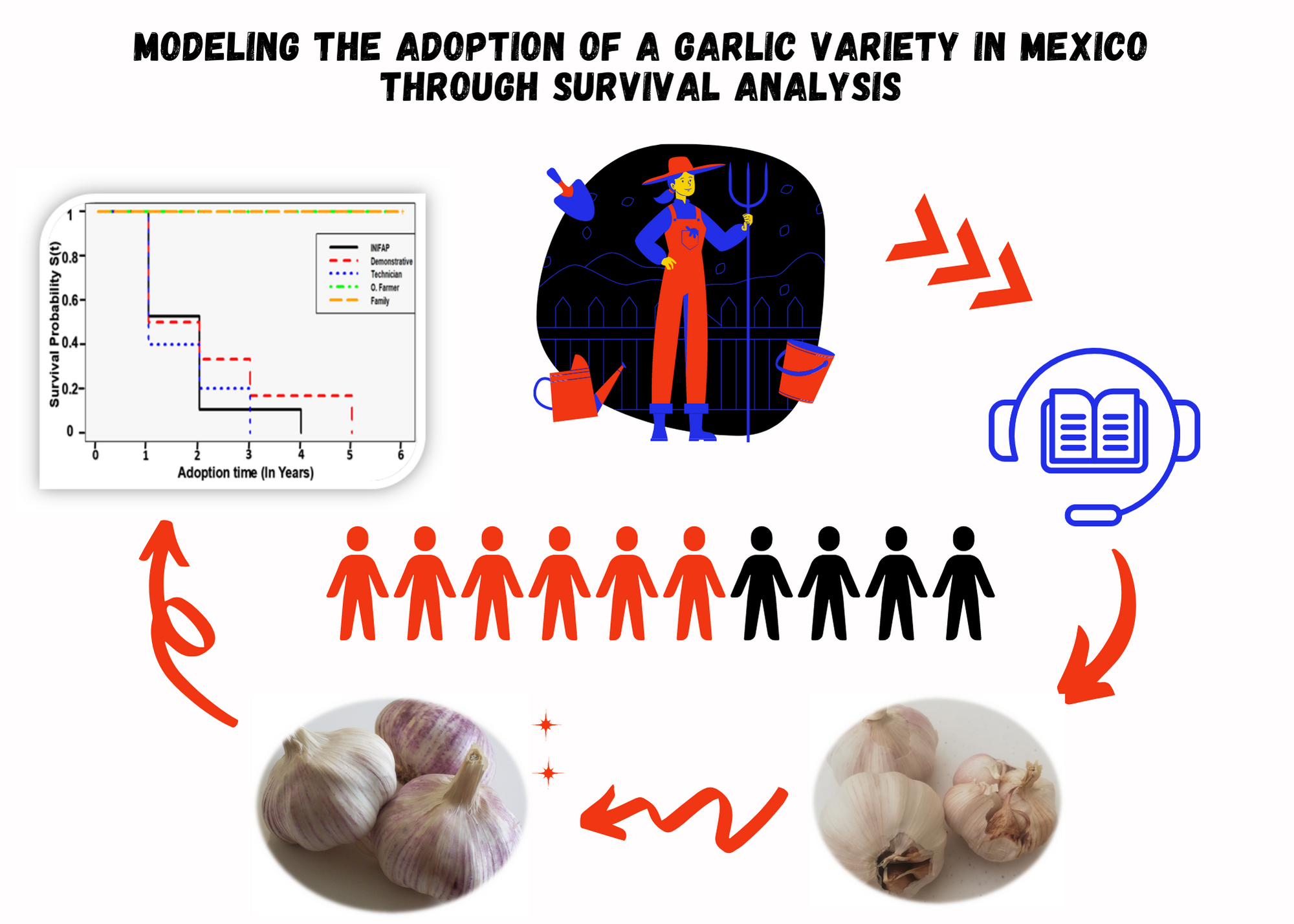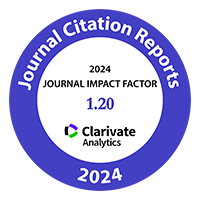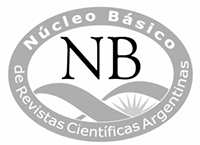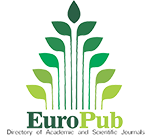Modeling the adoption of a garlic variety (Allium sativum L.) in Mexico through survival analysis
Adoption speed of a garlic variety in Mexico
DOI:
https://doi.org/10.48162/rev.39.051Keywords:
Allium sativum L., improved variety, adoption speedAbstract
The objective of this research was to analyze the adoption behavior over time for the improved variety of garlic CEZAC 06, and the factors associated with the adoption process through survival analysis (SA), in North-Central Mexico. The data comes at farm level and was collected in 2019 through a questionnaire given to 40 garlic farmers in Zacatecas, Mexico. The results show that 62.5 % of the farmers who adopted CEZAC 06 carried out this process in the first two years after they were first introduced to it. The factors that played a role in the adoption process were: farmer age, how long the farmer had been in business for, number of hectares availables for garlic production, yield, number of college-educated family members, income from crop farming, income from garlic farming, agriculture-related courses taken, financial aid from the federal government, and being part of any type of organization. Improving yield and the quality of the garlic bulb requires an adequate extension system that allows farmers to receive updated and reliable information on the importance of technological innovation.
Highlights
- The analysis also suggested that new technologies should be transmitted at higher rates to increase adoption. This can be done by implementing courses aimed at farmers with low educational backgrounds, small plots of land and low productivity levels.
- The factors affecting the adoption process were: farmer age, how long the farmer had been in business, yield, etc.
- CEZAC 06 will increase yield and rural farmers could improve the quality of the bulb as a marketable surplus.
- This work contributes to the scarce literature on the application of survival analysis to agricultural technologies.
Downloads

Downloads
Published
How to Cite
Issue
Section
License
Copyright (c) 2018 Revista de la Facultad de Ciencias Agrarias UNCuyo

This work is licensed under a Creative Commons Attribution-NonCommercial-ShareAlike 3.0 Unported License.
Aquellos autores/as que tengan publicaciones con esta revista, aceptan las Políticas Editoriales.











.jpg)




